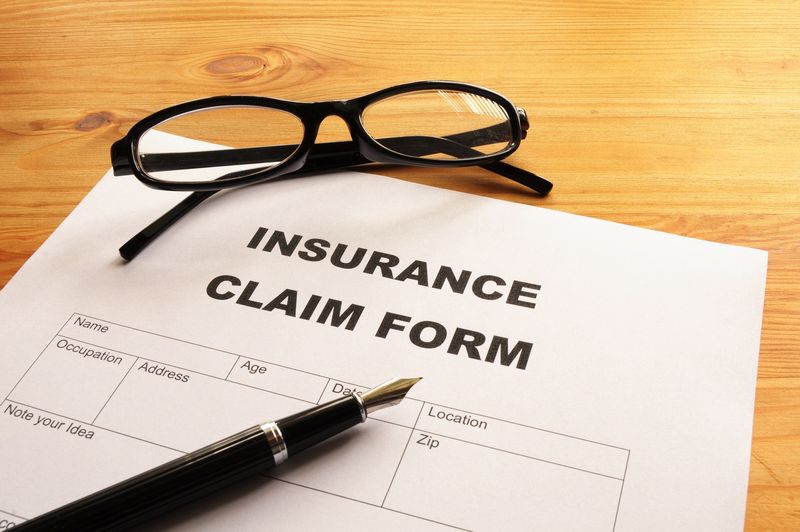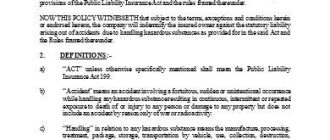
Strategies for Fighting Against an Insurance Claim Made Against You.
When it comes to insurance claims, it’s important to be prepared for any situation. Whether you’re an individual or a business owner, knowing how to defend yourself against an insurance claim can save you time, money, and headaches. Here are some strategies to consider when fighting against an insurance claim:
1. Document everything: Keeping records of all interactions with the insurance company can bolster your defense. This includes emails, letters, and phone conversations. Having a solid paper trail can protect you from false claims or misunderstandings.
2. Understand your policy: Familiarize yourself with the terms and conditions of your insurance policy. Knowing what you’re covered for and what you’re not can help you build a strong defense against any claim that falls outside the coverage.
3. Seek legal advice: If you’re facing a complicated insurance claim, it’s wise to consult with an experienced attorney who specializes in insurance law. They can guide you through the process and provide expert advice tailored to your specific situation.
4. Gather evidence: Collecting evidence to support your defense is crucial. This can include photographs, videos, witness statements, or any other relevant documentation. The more evidence you have, the stronger your defense will be.
5. Communicate effectively: Be clear and concise when communicating with the insurance company. Use written correspondence whenever possible and keep a copy for your records. Avoid making statements that could be misinterpreted or used against you.
By employing these strategies, you can increase your chances of successfully defending yourself against an insurance claim. Remember, being proactive and organized is key when it comes to protecting your rights and interests.
Understanding Insurance Claims
An insurance claim is a formal request made by an individual or entity to an insurance company to seek compensation for a loss or damage covered under an insurance policy. It is important to have a clear understanding of insurance claims and the process involved in fighting against an insurance claim.
When an individual or entity experiences a loss or damage that is covered by an insurance policy, they have the right to file a claim to seek financial coverage, known as a claim. It is crucial to gather all the necessary documentation and evidence to support your claim and make the process as smooth as possible.
However, insurance companies have their own strategies to protect their interests and minimize their financial liability. They will often investigate claims thoroughly and may try to find loopholes or inconsistencies to deny or reduce the amount of compensation you are entitled to.
Therefore, it is essential for you to be prepared and employ effective strategies to defend yourself against an insurance claim. Some strategies that can be employed include:
- Gather all relevant documents: Make sure to gather all the necessary documents, such as police reports, medical records, and invoices, to provide evidence of your loss or damage.
- Document everything: Keep a detailed record of all communication with the insurance company, including dates, names of individuals spoken to, and the content of the conversation. This will help you keep track of the progress and any discrepancies that may arise.
- Seek legal counsel: If you encounter difficulties with your insurance claim, it may be wise to seek legal advice. An experienced attorney can guide you through the process and help protect your rights.
- Be persistent: Insurance claims can be a lengthy and frustrating process. It is important to be persistent and follow up with the insurance company regularly to ensure your claim is being properly processed.
By understanding insurance claims and employing effective strategies, you can increase your chances of successfully fighting against an insurance claim and receiving the compensation you deserve.
Importance of Taking Action
Taking action is crucial when it comes to defending yourself against an insurance claim. It is essential to remember that you are fighting against a company that has vast resources and a team of professionals working to reduce or deny your claim. If you fail to take action and just assume that everything will be resolved on its own, you may end up losing and facing significant financial consequences.
By implementing the right strategies, you can level the playing field and protect your interests. One of the most important steps is to gather evidence and document all relevant information related to the incident or accident. This can include photographs, videos, witness statements, police reports, and any other supporting documentation that strengthens your case.
Another effective strategy is to consult with an experienced insurance claims attorney who can guide you through the process and ensure that you are well-prepared. They can review your policy, negotiate with the insurance company on your behalf, and advocate for your best interests.
Furthermore, it is essential to know your rights and understand the terms and conditions of your insurance policy. By being informed, you can effectively communicate with the insurance company and challenge any unfair practices or denials.
Finally, taking prompt action is crucial. Insurance claims have deadlines, and if you miss them, you may lose your chance to seek compensation. Therefore, staying proactive and adhering to the necessary timelines is of utmost importance.
In conclusion, taking action against an insurance claim is vital to protect yourself and ensure a fair outcome. By implementing effective strategies, gathering evidence, seeking legal guidance, and knowing your rights, you can position yourself for success and fight against unfair practices by insurance companies.
Common Tactics Employed
When fighting against an insurance claim, you may encounter a number of common tactics that the insurance company may use to try to reduce or deny your claim. It is important to be aware of these strategies and to be prepared to counteract them effectively.
- Delaying tactics: Insurance companies may intentionally delay the processing of your claim in the hope that you will give up or settle for a lower amount. It is crucial to stay persistent and follow up regularly to ensure that your claim is being processed in a timely manner.
- Denial or undervaluation: Some insurance companies may flat out deny your claim or undervalue the damages. They may argue that the damages were not caused by the incident in question or that they fall under an exclusion clause in your policy. It is important to gather sufficient evidence and documentation to support your claim and to review your policy carefully to counteract these tactics.
- Disputing liability: Insurance companies may try to shift the blame and dispute liability. They may argue that you were at fault or that someone else was responsible for the incident. It is important to gather witness statements, photographs, and other evidence to support your version of events and to establish liability properly.
- Lowball settlement offers: In an attempt to settle your claim quickly and for a lower amount, insurance companies may make lowball settlement offers. It is crucial to carefully review and negotiate any settlement offer to ensure that it accurately reflects the full value of your claim.
- Intimidation tactics: Some insurance companies may try to intimidate you by using aggressive or deceptive tactics. They may pressure you into accepting a low settlement offer or try to confuse you with legal jargon. It is important to stay calm, assertive, and consult with an attorney if necessary to protect your rights.
By being aware of these common tactics employed by insurance companies, you can better navigate the claims process and ensure that you receive the full compensation you deserve.
Gathering Evidence
When fighting an insurance claim, one of the most important strategies is gathering evidence to support your case. The insurance company will likely try to downplay or dismiss your claim, so it’s essential to have strong evidence to counter their arguments.
Here are some key strategies for gathering evidence:
- Document the incident: Whether it’s a car accident, property damage, or personal injury, make sure to document the incident as thoroughly as possible. Take photos, videos, and written descriptions of the damages and injuries.
- Collect witness statements: If there were any witnesses to the incident, gather their contact information and ask for written statements describing what they saw. Witness testimonies can provide crucial support for your claim.
- Gather medical records: If you’re making a personal injury claim, obtain copies of your medical records, including diagnoses, treatment plans, and prognosis. These records can demonstrate the extent of your injuries and the associated costs.
- Obtain police reports: In cases involving accidents or other incidents that required police intervention, obtain copies of the police reports. These reports often contain valuable information about the incident and can help substantiate your claim.
- Keep a record of expenses: Be sure to keep track of all expenses related to the incident, such as medical bills, repair costs, and lost wages. These financial records can demonstrate the financial impact of the incident.
- Consult with experts: Depending on the nature of your claim, it may be beneficial to consult with experts, such as accident reconstruction specialists or medical professionals, who can provide expert opinions and testimony to support your case.
By gathering strong evidence, you can significantly bolster your chances of a successful insurance claim. Remember to organize your evidence in a clear and logical manner and provide copies to the insurance company when requested.
Documenting the Incident
When it comes to fighting against an insurance claim, one of the most crucial strategies is documenting the incident in great detail. In order to strengthen your case and protect yourself from false claims, it is essential to gather evidence and maintain accurate records of the incident.
Start by taking photographs of the scene, making sure to capture any damages and relevant surroundings. This visual evidence can be instrumental in proving the accuracy of your account and countering any false claims made by the opposing party.
In addition to photographs, it is important to gather any available video footage of the incident. This can be obtained from surveillance cameras, dashcams, or even smartphones. Video evidence provides a comprehensive view of the incident, leaving little room for interpretation or manipulation.
Furthermore, collecting eyewitness testimonies can greatly strengthen your case. Speak to anyone who witnessed the incident and ask them to provide a detailed account of what they saw. Their statements can serve as valuable evidence and support your side of the story.
Keep in mind that documenting the incident extends beyond gathering visual and testimonial evidence. It is equally important to maintain accurate records of any medical treatment received as a result of the incident. This includes medical reports, prescriptions, and bills. These documents serve as proof of the injuries sustained and the financial impact it has had on you.
In conclusion, documenting the incident thoroughly and efficiently is a vital strategy in the fight against an insurance claim. By gathering evidence, preserving records, and obtaining eyewitness testimonies, you can strengthen your case and defend yourself effectively.
Seeking Legal Advice
If you find yourself fighting against an insurance claim, it is crucial to seek legal advice. Insurance companies have teams of experienced lawyers who will do everything in their power to minimize the amount they have to pay out. To level the playing field and ensure your rights are protected, hiring a skilled attorney is essential.
An attorney specializing in insurance claims will analyze your case and help you develop effective strategies to fight against the insurance company. They will navigate the complex legal framework and ensure that you understand your rights and options throughout the process.
One of the key strategies your attorney may employ is carefully reviewing your insurance policy to identify any loopholes or ambiguous language that the insurance company may try to exploit. Armed with this knowledge, they can build a strong defense on your behalf.
Your attorney will also assist you in gathering evidence to support your claim. This may include obtaining medical records, accident reports, witness statements, and expert testimonies. A thorough and well-documented case will increase your chances of success.
Additionally, your attorney will negotiate with the insurance company on your behalf. They will use their knowledge of the law and their experience dealing with insurance companies to ensure you receive a fair settlement. If negotiations fail, your attorney will be prepared to take your case to court and fight for your rights.
When it comes to insurance claims, you don’t have to face the battle alone. Seek legal advice and let an experienced attorney guide you through the process, providing you with the best chance of success in fighting against the insurance company.
| – Seek legal advice |
| – Hire a skilled attorney |
| – Review insurance policy |
| – Gather evidence |
| – Negotiate or go to court |
Negotiating with Insurance Companies
When dealing with an insurance claim, it is important to be prepared and knowledgeable about negotiation strategies. Here are some key strategies to help you negotiate with insurance companies:
1. Document Everything: Keep detailed records of all interactions with the insurance company, including phone calls, emails, and letters. This documentation will provide evidence and support your claim.
2. Understand Your Policy: Review your insurance policy carefully to understand your coverage and the terms and conditions. This will give you a better understanding of what you are entitled to in the event of a claim.
3. Gather Evidence: Collect all relevant evidence to support your claim, such as photographs, videos, witness statements, and police reports. This evidence will strengthen your position during negotiations.
4. Know Your Rights: Familiarize yourself with your rights as a policyholder. Insurance companies have a duty to act in good faith and handle claims promptly and fairly. Understanding your rights can help you assert your position during negotiations.
5. Be Persistent: Don’t be discouraged if the insurance company rejects or offers a low settlement initially. Be persistent in advocating for your rights and negotiate for a fair and equitable resolution.
6. Seek Professional Assistance: If you are facing challenges or feel overwhelmed during the negotiation process, consider seeking professional assistance from an experienced insurance claims attorney or public adjuster. They can provide valuable guidance and representation to help you negotiate effectively.
Remember, negotiating with insurance companies can be a complex and lengthy process. By following these strategies, you can increase your chances of success and obtaining a fair settlement for your insurance claim.
Protecting Personal Assets
When it comes to insurance claims, the best defense is a good offense. Protecting your personal assets can help safeguard you against unexpected claims and ensure your financial stability. Here are a few strategies to help you protect yourself against an insurance claim:
- Evaluate your coverage: Review your insurance policies regularly to ensure that you have adequate coverage for your personal assets. Make sure that your coverage limits are sufficient and that you understand the terms and conditions of your policy.
- Document your possessions: Keep a detailed inventory of your personal belongings, including receipts, appraisals, and photographs. This documentation will help you prove the value of your assets in case of an insurance claim.
- Maintain proper maintenance: Regularly maintain your personal assets to minimize the risk of accidents or damages. This can include routine inspections, repairs, and upgrades to ensure that your assets are in good working condition.
- Monitor your liability: Pay attention to your actions and behaviors that may expose you to potential claims. Be aware of any potential risks and take steps to minimize them. You can also consider purchasing umbrella insurance to provide additional liability coverage.
- Seek legal advice: If you find yourself facing an insurance claim, it’s crucial to seek legal advice from a trusted professional. They can help guide you through the process and ensure that your interests are protected.
By implementing these strategies, you can fortify your defenses against an insurance claim and safeguard your personal assets. Remember, proactive protection is key when it comes to avoiding financial setbacks and maintaining peace of mind.
Safeguarding Personal Information
When it comes to fighting an insurance claim, one of the most crucial strategies is safeguarding your personal information. Claimants and insurance companies alike gather and rely on personal information to make decisions about the validity of a claim.
Here are some top strategies to protect your personal information:
- Keep your personal documents secure: Store important documents, such as insurance policies, medical records, and receipts, in a safe and secure location. Consider using a lockbox or a fireproof safe to protect them from theft or damage.
- Be cautious online: Avoid sharing personal information, such as your social security number, driver’s license number, or financial details, on unsecured websites. Regularly update your passwords and enable two-factor authentication for online accounts to enhance security.
- Protect your mail: Shred any documents containing personal information before tossing them in the trash. If you’ll be away from home for a while, consider placing a hold on your mail or having it forwarded to a trusted individual to prevent it from piling up or falling into the wrong hands.
- Monitor your credit: Regularly check your credit reports from major credit bureaus for any suspicious activity. Consider enrolling in a credit monitoring service to receive alerts for any changes or unauthorized credit inquiries.
- Be wary of phishing scams: Be cautious of emails, calls, or messages requesting your personal information, even if they claim to be from your insurance company or other trusted sources. Always verify the legitimacy of the request before providing any sensitive information.
- Dispose of personal information properly: When getting rid of old electronics or physical documents, ensure that any personal information is completely erased or destroyed. Utilize data wiping tools or professional shredding services to effectively eliminate any trace of personal data.
By implementing these strategies, you can significantly reduce the risk of your personal information being compromised during an insurance claim. Remember, safeguarding your personal information is an essential step in protecting yourself while fighting an insurance claim.
Identifying False Accusations
When it comes to insurance claims, it is important to be aware of potential false accusations that may be made against you. False accusations can put you at risk of having your insurance claim denied or facing legal repercussions. Here are some strategies to help you identify false accusations and protect yourself against them:
- Document everything: Keep detailed records of all interactions, communications, and transactions related to your insurance claim. This includes emails, letters, phone calls, and any other relevant documentation. These records can serve as evidence in case of false accusations.
- Be vigilant: Pay close attention to any inconsistencies or discrepancies in the information provided by the other party involved in the claim. Look out for any contradictions, exaggerations, or omissions that could indicate a false accusation.
- Consult with professionals: If you suspect that you are being falsely accused, it is important to seek advice from legal and insurance professionals. They can help you understand your rights, navigate the claims process, and provide guidance on how to handle false accusations.
- Gather witnesses: If possible, gather witnesses who can support your version of events and refute any false accusations. Witnesses can provide valuable testimonies that can strengthen your case and discredit false claims.
- Stay organized: Keep all relevant documents and evidence organized and easily accessible. This includes medical reports, repair estimates, photographs, and any other documentation that can support your claim and debunk false accusations.
- Act quickly: If you suspect false accusations, it is crucial to take immediate action. Report the situation to your insurance company and provide them with all the necessary documentation and information to defend yourself against the false claims.
- Seek legal assistance: In case of serious false accusations, it may be necessary to hire a lawyer who specializes in insurance claims. They can help you build a strong defense, navigate legal proceedings, and protect your rights.
By implementing these strategies, you can better identify false accusations and take proactive measures to defend yourself against them. Remember, being well-prepared and diligent can significantly increase your chances of a successful insurance claim and protect your interests.
Understanding Policy Coverage
When it comes to fighting against an insurance claim, it is crucial to have a thorough understanding of your policy coverage. By knowing what is covered and what is not, you can effectively protect yourself and your assets.
The first step in understanding your policy coverage is to carefully review your insurance contract. This document outlines the terms and conditions of your insurance policy, including what is covered and what is excluded. Take the time to read through it and familiarize yourself with the specific details of your coverage.
Next, make sure to identify any potential limitations or exclusions in your policy. Insurance companies often include specific clauses that restrict coverage for certain situations or events. By knowing these limitations upfront, you can better prepare yourself and plan accordingly.
It is also crucial to keep your insurance policy up to date. Circumstances and needs may change over time, and it is important to ensure that your policy adequately covers your current situation. Regularly review and update your policy as needed to avoid any gaps in coverage that could leave you vulnerable in the event of a claim.
Another important aspect of understanding your policy coverage is knowing your rights and responsibilities as the policyholder. Familiarize yourself with the claims process and the steps you need to take if you need to file a claim. This knowledge will empower you to navigate the process more effectively and protect your interests.
In addition, consider consulting with an insurance professional or attorney who specializes in insurance claims. They can provide valuable insight and guidance on your specific situation, helping you make informed decisions and ensuring that you are adequately protected.
By understanding your policy coverage and implementing these strategies, you can better defend yourself against an insurance claim. Remember, knowledge is power, and being proactive in protecting your rights and assets is essential in the fight against any claim made against you.
undefined
What is the book “Top Strategies to Defend Yourself Against an Insurance Claim” about?
The book “Top Strategies to Defend Yourself Against an Insurance Claim” is a comprehensive guide that provides useful strategies and tips to help individuals protect themselves when facing an insurance claim. It covers various aspects of insurance claims and gives practical advice on how to handle them effectively.
Who is the target audience for “Top Strategies to Defend Yourself Against an Insurance Claim”?
The book “Top Strategies to Defend Yourself Against an Insurance Claim” is primarily targeted towards individuals who have had or are likely to have an insurance claim filed against them. It can be beneficial for anyone seeking knowledge and understanding of how to navigate the complexities of insurance claims and effectively defend themselves.
What can I expect to learn from “Top Strategies to Defend Yourself Against an Insurance Claim”?
By reading “Top Strategies to Defend Yourself Against an Insurance Claim,” you can expect to gain valuable insights into insurance claim processes and learn effective strategies to protect yourself. The book covers topics such as understanding insurance policies, gathering evidence, dealing with insurance adjusters, negotiating settlements, and more.
Is “Top Strategies to Defend Yourself Against an Insurance Claim” suitable for beginners?
Yes, “Top Strategies to Defend Yourself Against an Insurance Claim” is suitable for beginners. The book is written in a clear and accessible language, making it easy for readers with little to no prior knowledge of insurance claims to understand the concepts and strategies presented. It provides a solid foundation for individuals who are new to dealing with insurance claims.
Does “Top Strategies to Defend Yourself Against an Insurance Claim” provide real-life examples?
Yes, “Top Strategies to Defend Yourself Against an Insurance Claim” includes real-life examples to illustrate the concepts and strategies discussed. These examples provide practical insights and help readers understand how to apply the strategies in real-world scenarios. The use of real-life examples enhances the learning experience and makes the book more relatable.
What are some strategies to defend myself against an insurance claim?
There are several strategies you can use to defend yourself against an insurance claim. One strategy is to gather evidence that supports your case, such as photos or witness statements. Another strategy is to hire an attorney who specializes in insurance defense to help navigate the legal process. You can also review your insurance policy to ensure you understand your rights and obligations. Finally, it’s important to communicate clearly and honestly with your insurance company throughout the claims process.
How can I gather evidence to defend myself against an insurance claim?
Gathering evidence is an important part of defending yourself against an insurance claim. One way to gather evidence is to take photos of the accident scene and any damage or injuries. You should also try to obtain witness statements, if possible. It can also be helpful to gather any relevant documents, such as police reports or medical records. This evidence can support your version of events and help defend against any false or exaggerated claims.







